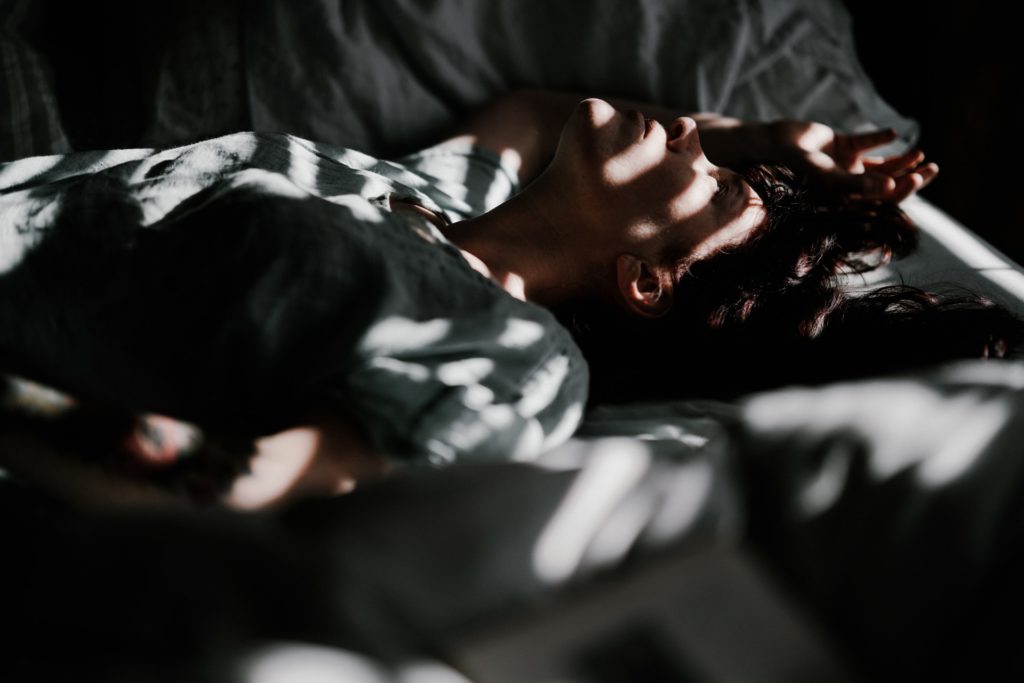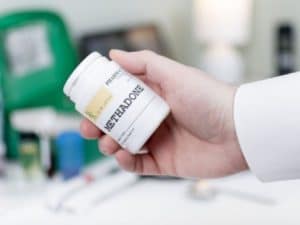
Opiate Detox Treatment: What Happens During Opiate Detox?
If you are caught in the grasp of opiate addiction, it can feel almost impossible to imagine breaking free. However, an opiate detox treatment can

August 17, 2020
Withdrawal symptoms associated with opiate abuse and dependence can vary greatly from person to person, but in most cases, a syndrome that feels much like the flu is common among recovering individuals. This syndrome can include symptoms such as muscle and joint pain, sneezing, anxiety, and for many people, insomnia. Often, the other symptoms associated with opiate withdrawal will dissipate after a few weeks. But if not, they can be easily managed with medication. Insomnia, however, has a reputation for long-lasting effects and a resistance to medical treatment.
As such, you may be wondering how best you can cope with insomnia after your opiate detox has ended. At Summer House Drug and Alcohol Detox in Florida, we offer many different treatment options for those going through drug and alcohol detox, drug and alcohol rehab, and aftercare.
In most cases, patients go through supervised opiate detox in as little as one week up to a period of one month. The process includes weaning the patient off opiates in order to minimize pain and discomfort. Still, even though the process of withdrawal usually takes around a month at most, certain symptoms, such as insomnia, dysphoria, and irritability, may last anywhere from six to eight months, according to a 2007 study published in the medical journal, Dialogues in Clinical Neuroscience.
After detox is complete, you can expect to move into the addiction treatment phase of recovery. However, this requires a lot of self-examination as well as focused work, which can be difficult when symptoms like insomnia tend to linger. So why does this happen?
This occurs for a number of reasons. For one, the body is pulled out of its natural rhythms when drugs like opiates are abused. Your body may become extremely fatigued when you use the drug, and over time, you are teaching your body and mind that the best—and even only—time to sleep is when drugs are used. Therefore, this can make it extremely difficult for your body to get back into the rhythm of sleeping every night without substance abuse, even after your dependence on opiates has ebbed.
Furthermore, it takes the body a long time to get back into its natural state after a disturbance as large as opiate addiction. This is why insomnia often lasts longer than the other symptoms of opiate withdrawal. In fact, insomnia is associated with almost every type of withdrawal from every substance of abuse.
Finally, the treatments used to minimize withdrawal symptoms themselves are also often weak against the severity of opiate-withdrawal-induced insomnia. According to a study that was published in the medical journal, Drug & Alcohol Dependence, insomnia was found among two groups of opiate addicts who were being treated separately with methadone and electrostimulation, respectively. No matter what type of treatment is used, insomnia is still likely to occur.
It can be difficult to imagine not sleeping well for several months. As such, it is very important not to panic, nor to feel that sleep isn’t important for your safe recovery. Instead, you’re going to need to pay careful attention to your sleeping habits in order to make sure you can cope with the common symptom of insomnia after opiate detox.
Here are a few suggestions to make it easier to sleep at this point in your recovery—or at least to build a better sleeping regimen as time passes.
When it’s time for you to sleep, you’re going to need to remind your body of this, as well as of the importance of a good night’s rest. This means doing everything you know is better for your body and mind before bed and everything that can help ensure better, longer, and sounder sleep.
All of these changes can truly benefit your rest cycle. Of course, they may not seem like they are doing much at first, but you are building habits that will lead to better, sounder sleep over time.
When someone suggests you stay up later than usual or you have a partner who likes to leave the TV on at night, make sure you explain to them that you can’t be lenient about your sleep routine. Anything could throw it off and make it harder for you to sleep, so don’t be afraid to stand up for yourself.
You may have stayed up at night and slept during the day when you were using. It’s a common behavior. Unfortunately, this means the circadian rhythms of your body are probably even more unbalanced. One great way of fixing this issue is to go outside in the morning when the sun is bright and strong and let yourself soak up its rays. Then, at night, your body will begin to truly feel the difference and will be more likely to feel tired.
The more you want to sleep, the more it will probably elude you. Therefore, when you wake up in the middle of the night, don’t force yourself to stay stubbornly curled up in bed, even if you are not getting any more shuteye. Instead, it can help to sit up and read a few pages from a book or grab a glass of water. Letting your body get out some of that pent-up energy might make it easier to fall asleep once your head hits the pillow again.
In most cases, it is not recommended that you begin taking prescription sleep aids for insomnia caused by prolonged opiate withdrawal. This is because these medications, such as eszopiclone (Lunesta), zolpidem (Ambien), and zaleplon (Sonata), are central nervous system depressants. They are among the most commonly abused drugs, according to the National Institute on Drug Abuse. These medications can cause an intense high when a person takes them and fights the urge to sleep.
Some over the counter drugs or supplements used as sleep aids can also cause problems. For example, melatonin can be a great, natural sleep aid, but if you take it too often, it can potentially cause depression, anxiety, and nausea, as stated by the Mayo Clinic. Many people don’t know this, and instead of using melatonin sparingly, take large doses every night, which can lead to problems.
It is always important to talk to your doctor about taking any kind of sleep aid, whether it is a supplement, an over-the-counter drug, or a prescription drug. Any of these could potentially cause more problems for you and make it even harder to rid yourself of your insomnia down the line, so be careful taking them and only do so when it’s been recommended by a doctor who understands your medical history and the reason for your insomnia.
As recently as 2018, a drug called lofexidine was approved by the US Food and Drug Administration to treat opiate withdrawal. It is considered the first non-opiate drug specifically approved for treating opiate withdrawal, and insomnia is one of the symptoms it treats. Unlike most other opiate-withdrawal-treating medications, lofexidine is not an opiate itself but a central alpha-adrenergic agonist, according to the National Library of Medicine. This makes it safer, as it cannot be abused to cause an opiate-like high.
Your doctor may approve you for treatment with this or another type of medication, but different individuals need different options. In most cases, it is often best to go with the natural approach to treating your insomnia first while keeping track of how it is improving or not improving. You can do this by keeping a sleep journal, noting how you feel when you wake up and how long you managed to sleep.
You don’t have to live with opiate abuse and addiction. You can begin a journey of recovery today with opiate detox at our Summer House Detox Center. If you or someone you know is in need of addiction treatment in Fort Lauderdale, FL, give Summer House Detox Center a call at 800-719-1090 to schedule a FREE consultation. You can also visit us at 13550 Memorial Highway Miami, FL 33161. We are open 24 hours a day, 7 days a week.

If you are caught in the grasp of opiate addiction, it can feel almost impossible to imagine breaking free. However, an opiate detox treatment can

Detox from opiates can produce withdrawal symptoms ranging from flu-like symptoms and insomnia to irregular heartbeat and anxiety. With symptoms like that, it’s understandable why

Methadone detox is one of the treatments usually provided in rehab centers for opioid addiction. And sometimes, opioid addicts, who are on their way to
For immediate assistance, please call our Admissions Specialists at 800-719-1090.
Speak With A Qualified Addiction Specialist 24/7